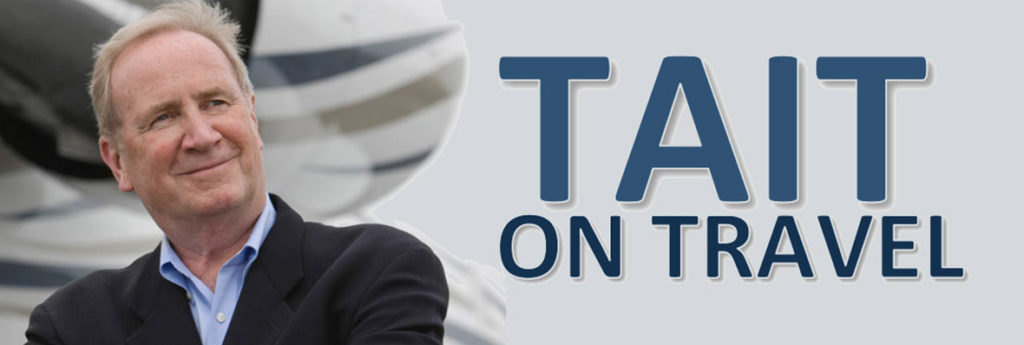For quite a number of years after its 2000 introduction, ”Zoom-Zoom-Zoom” was the catchy anthem on Mazda’s TV ads. In the last few weeks however, ‘ZOOM’ is taking on an altogether different meaning for an exponentially growing cadre of business people.
This particular Zoom is an inexpensive, user-friendly, videoconferencing app. Not surprisingly, as COVID-19 steadily strangles both foreign and domestic travel, Zoom, GoToMeeting and others of its ilk are rapidly winning vast new user groups. Zoom for instance now boasts 12.92 million monthly users – a dramatic increase of 2.22 million active monthly users so far in 2020.
We hotel and airline types have of course talked off and on over the years about the threat these kinds of services might “someday” pose to retaining our all- important business travellers. However, even after events like 9/11, SARS in 2003 and 2008’s crash, business has always managed to bounce back and in recent years has been doing very well. But today’s situation is very different and those problems were all 12-19 years ago. Heck, we didn’t see the first iPhone until the middle of 2007 and, since then, the advent of apps and these kind of web-based, virtual-meeting alternatives has changed a lot of things.
So, without being a prophet of doom and gloom – there’s more than enough of that out there already – one must accept that the longer the COVID crisis drags on, the bigger the threat that corporation and SME’s alike can only become much more willing to embrace teleconferencing. While there’s no question as the value of face-to-face networking, the longstanding argument that, “To close the deal, you absolutely must look ‘em straight in the eye and press the flesh” is springing a few leaks. In fact, is that firm handshake ever going to make a return? Might we be elbow bumping and toe tapping ad infinitum? But I digress…
Let’s face it, if over the coming however many months CFO’s begin to see that enough deals can indeed be concluded remotely, without all the attendant expenses of airfares, limos, dinners and hotel nights – not to mention the loss of individual productivity on long-haul trips – then we should anticipate some significant rethinking of the pre-corona business travel model.
But travel is just one of many major businesses where COVID-19 could precipitate a serious, and perhaps long overdue, makeover – take further education for instance. It’s truly incredible how little the Internet age has affected the ancient MO of the world’s colleges and universities. Consider something as basic as researching a paper: Before the Internet, students would have to get out of bed, bike to the library, dig around and hope to find the right reference books, find the relevant pages, transcribe the quotes etc. etc.. Now, without even getting out of bed, a student can Google exactly what they’re looking for, instantaneously find 100 times more relevant information, then cut and paste and change just enough to fool the plagiarism software. I jest, but am deadly serious when asking why this new world order has not been reflected in the number of years it takes to earn a degree? Why are most colleges still running four-year degree courses with maybe 200 days out of 365 actually in school? That may be good utilization for a commercial jet but it’s not for huge college campuses.
All three of my sons have been sent home from their out-of-town schools and told that their classes will continue via webinar – most likely for the remaining school year. As with web-enabled business meetings, if suddenly parents and students are ‘force majeured’ into recognizing that remote web-enabled learning is effective, then going forward, how many more are perhaps going to reconsider the viability and economies of online – particularly postgraduate – degree programmes? Online degrees courses have been steadily gaining ground in recent years and current events could – as with corporate travel policies – serve to give it a huge boost.
Of course if this kind of remote learning shift were also to happen, it would be another kick in the cojones for the airline community. While nowhere near as big as business travel, student travel still accounts for a lot of air tickets and for that matter hotel nights, with school visits, parents’ weekends, graduations et al.
I seriously didn’t want this to be a doom and ‘gloom-gloom-gloom’ piece. So to end on a happy note, even though I write this while effectively under house arrest with all our local bars, restaurants, cinemas, and retail establishments securely padlocked for the duration and with every ‘breaking news’ story only seeming to make it go from worst to ‘worster’ – the good new is that the liquor stores are still open!
Hang in there: This travel business of ours is famously resilient and, as it clearly states on laxative bottles, “This too will pass.”

